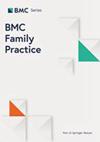Impact of COVID-19 pandemic on pediatric dental procedures in primary healthcare settings in Piracicaba, Brazil: an ecological study
IF 3.2
3区 医学
Q1 MEDICINE, GENERAL & INTERNAL
引用次数: 0
Abstract
The COVID-19 pandemic brought significant changes to dental care, which may have affected pediatric dental care offered in primary healthcare settings. Therefore, the aim of this study was to analyze the quantity of dental procedures performed in primary healthcare for children aged 6 to 12 years, before and during the COVID-19 pandemic. This is an ecological study using data from the health information system of Piracicaba, São Paulo, Brazil. The variables considered were: coverage of first programmed dental consultation, restoration of permanent and deciduous teeth, topical fluoride application (individual per session), emergency care, and deciduous tooth extraction. Two periods were considered: period I (March 1, 2019 to February 29, 2020) and period II (April 1, 2020 to March 31, 2021), before and during the pandemic, respectively. Comparisons between periods were made using the paired nonparametric Wilcoxon test with a significance level of 5%. There was an increase in emergency care from 15.4 to 32.4% (p = 0.0095) and a decrease in the number of restorations of deciduous teeth from 32.8 to 20.2% (p = 0.0217). The first programmed consultation showed a decrease of 9.60% (p = 0.0930) in period II. The COVID-19 pandemic has hindered access to primary dental care for children, impacting the quantity of emergency care, reducing restorations of deciduous teeth, and first programmed dental consultations. These findings highlight the need for strategies to ensure that pediatric dental care is not neglected during pandemics.COVID-19 大流行对巴西皮拉西卡巴初级医疗机构儿科牙科手术的影响:一项生态研究
COVID-19 大流行给牙科保健带来了重大变化,这可能会影响到初级保健机构提供的儿童牙科保健。因此,本研究旨在分析 COVID-19 大流行之前和期间初级医疗机构为 6 至 12 岁儿童提供的牙科治疗数量。这是一项生态学研究,使用的数据来自巴西圣保罗皮拉西卡巴的医疗信息系统。研究考虑的变量包括:首次牙科就诊、恒牙和乳牙修复、局部涂氟(个人每次)、急诊和乳牙拔除。考虑了两个时期:第一时期(2019 年 3 月 1 日至 2020 年 2 月 29 日)和第二时期(2020 年 4 月 1 日至 2021 年 3 月 31 日),分别是大流行之前和期间。期间之间的比较采用配对非参数 Wilcoxon 检验法,显著性水平为 5%。急诊率从 15.4% 上升到 32.4%(p = 0.0095),乳牙修复率从 32.8% 下降到 20.2%(p = 0.0217)。在第二阶段,首次方案咨询减少了 9.60% (p = 0.0930)。COVID-19大流行阻碍了儿童获得初级牙科保健服务,影响了急诊数量,减少了乳牙修复和首次牙科就诊。这些发现突出表明,有必要制定战略,确保大流行期间儿童牙科保健不被忽视。
本文章由计算机程序翻译,如有差异,请以英文原文为准。
求助全文
约1分钟内获得全文
求助全文
来源期刊

BMC Family Practice
医学-医学:内科
CiteScore
3.20
自引率
0.00%
发文量
0
审稿时长
4-8 weeks
期刊介绍:
BMC Family Practice is an open access, peer-reviewed journal that considers articles on all aspects of primary health care research. The journal has a special focus on clinical decision making and management, continuing professional education, service utilization, needs and demand, and the organization and delivery of primary care and care in the community.
 求助内容:
求助内容: 应助结果提醒方式:
应助结果提醒方式:


